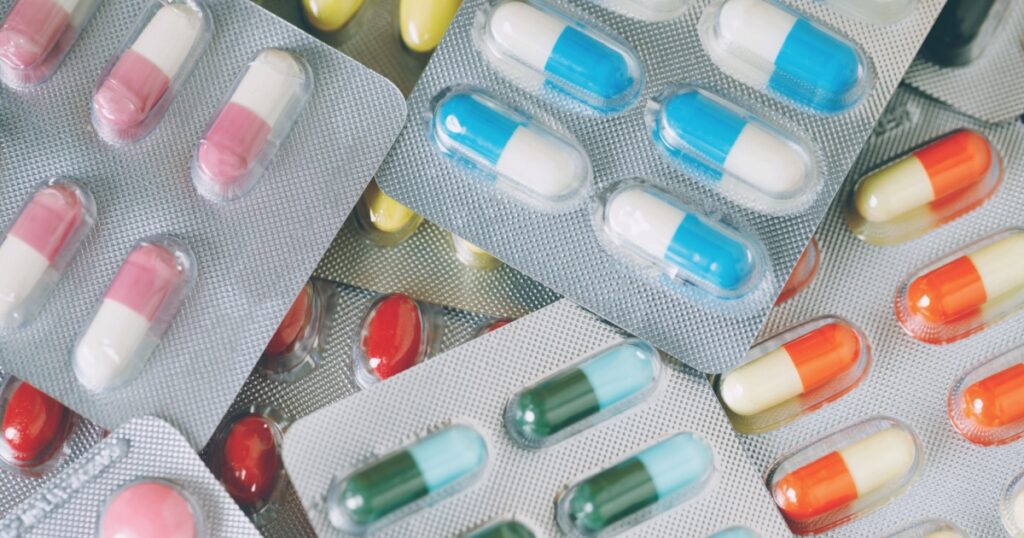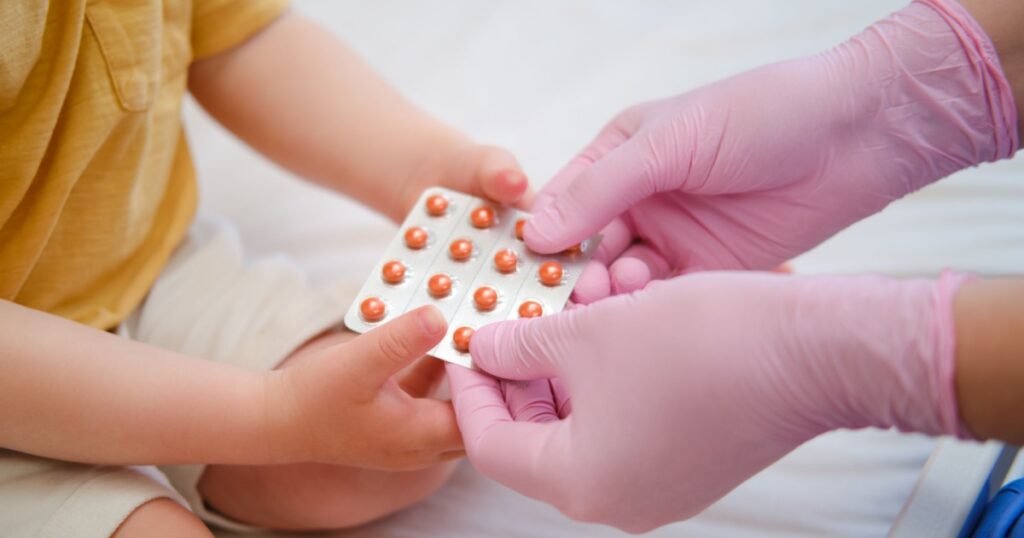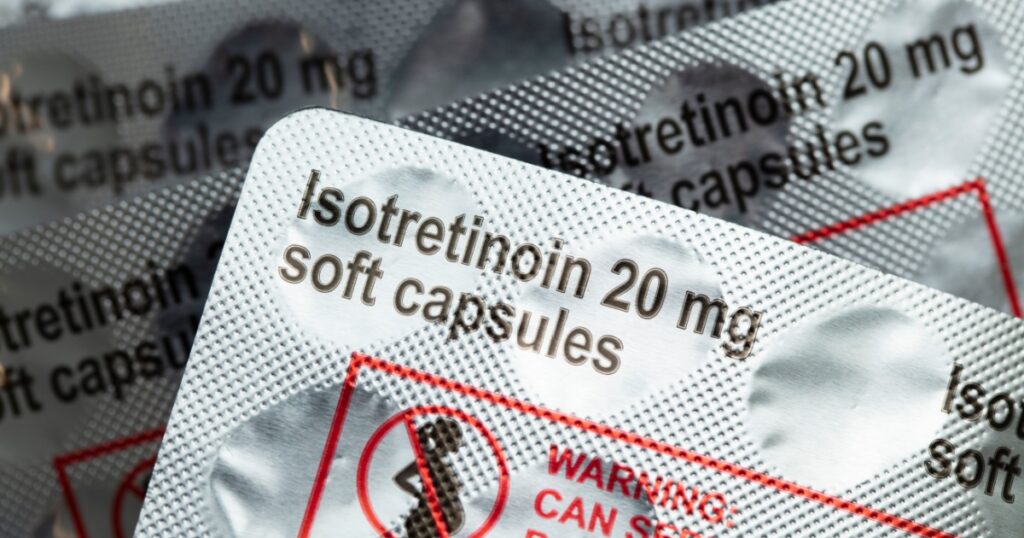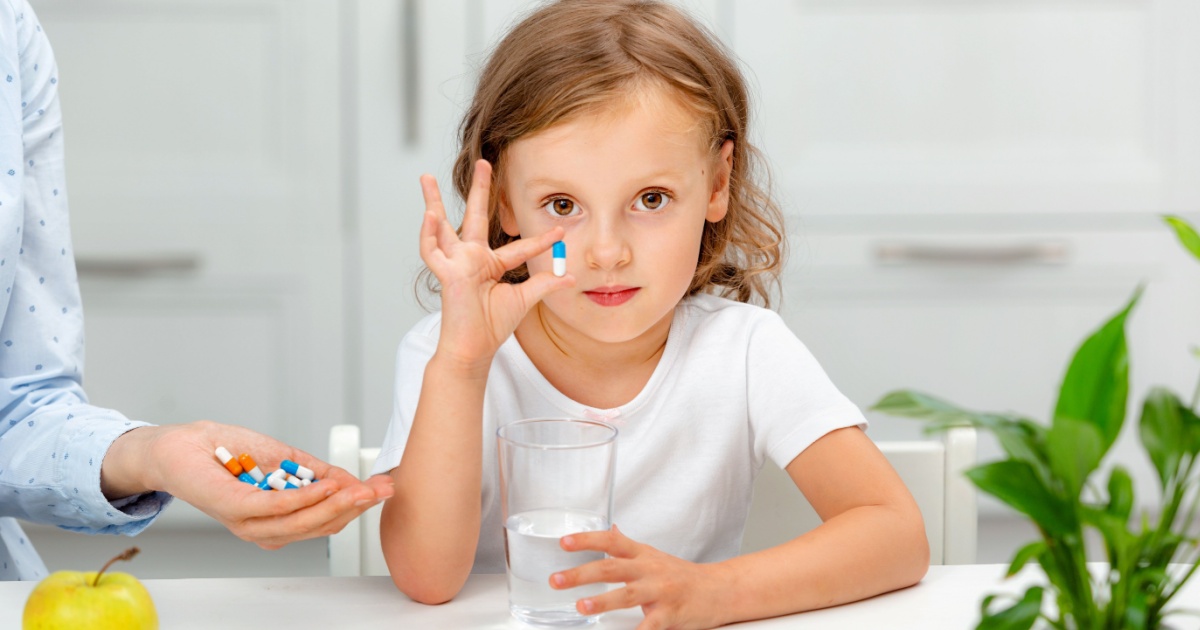Children have underdeveloped immune systems and therefore are more likely to get sick than adults. This means that they often require medication to manage various health conditions. It’s crucial to be aware, however, that certain medications can lead to permanent side effects that may impact their health in the long term. One class of medications that has been linked to permanent side effects in children is antibiotics. According to a recent study, early exposure to antibiotics can result in the development of permanent conditions like asthma and allergies.
Antibiotic Medications Side Effects: The Study

The study, published in Mucosal Immunology and conducted by researchers from Rutgers, New York University, and the University of Zurich, focused on the impact of antibiotics on the gut microbiome of young mice. The findings revealed that antibiotics, commonly used in children, can disrupt the balance of healthy gut bacteria and lead to elevated rates of immune responses, specifically allergies. The experiment showed that mice exposed to antibiotics early in life exhibited increased susceptibility to developing allergies when exposed to a common allergen. (1)
The study further demonstrated that early exposure to antibiotics can have a lasting effect on the immune system, predisposing individuals to asthma and allergies later in life. The transfer of antibiotic-altered gut bacteria to a new generation of mice resulted in heightened immune responses to allergens, highlighting the long-term consequences of early antibiotic exposure.
Read More: 39 Common Medications That Can Have Potentially Detrimental Side Effects
Implications of the Study for You and Your Children

The implications of this study are significant for parents and healthcare providers alike. The research suggests that avoiding unnecessary antibiotic use in young children is crucial to reduce the risk of long-term health problems such as asthma and allergies. By being mindful of the potential consequences of early antibiotic exposure, parents can work with healthcare professionals to explore alternative treatment options when appropriate.
“The practical implication is simple: Avoid antibiotic use in young children whenever you can because it may elevate the risk of significant, long-term problems with allergy and/or asthma,” said senior author Martin Blaser, director of the Center for Advanced Biotechnology and Medicine at Rutgers. “…these experiments provide strong evidence that antibiotics cause unwanted immune responses to develop via their effect on gut bacteria, but only if gut bacteria are altered in early childhood.” (2)
Other Medications That Can Cause Permanent Side Effects in Children

Aside from antibiotics, there are other medications that have been associated with permanent side effects in children. These are five examples:
1. Isotretinoin (Accutane)

This acne medication has been linked to potential side effects such as birth defects if taken during pregnancy and long-term effects on liver function. (3)
2. Corticosteroids

Prolonged use of corticosteroids in children can lead to issues such as growth retardation, weakened immune system, and osteoporosis. (4)
3. Anti-seizure medications

Some anti-epileptic drugs have been known to cause cognitive impairments and behavioral changes in children when used long-term. (5)
Read More: 10 of The Most Terrifying Drug Side Effects
4. Antidepressants

Certain antidepressants may increase the risk of suicidal thoughts or behaviors in children and adolescents. (6)
5. ADHD Medications

Stimulant medications used to treat ADHD can have side effects like decreased appetite, sleep disturbances, and potential effects on growth. (7)
Talking to Your Doctor about Medications for Your Child

When it comes to choosing medications for your child, open communication with your healthcare provider is essential. Discuss any concerns you have about potential side effects and ask about alternative treatment options if available. It’s crucial to understand the benefits and risks of medication before starting a treatment regimen for your child.
The Bottom Line

In conclusion, while medications can be beneficial in managing childhood health conditions, it’s important to be aware of the potential for certain medications, such as antibiotics, to cause permanent side effects. By staying informed, engaging in discussions with healthcare providers, and exploring alternative treatment options when necessary, parents can make informed decisions to safeguard their children’s health and well-being.
Read More: 14 Chemotherapy Side Effects No One Talks About & Natural Treatments
Sources
- “Influence of the early-life gut microbiota on the immune responses to an inhaled allergen.” Pubmed. Timothy C Borbet, Miranda B Pawline, Xiaozhou Zhang, Matthew F Wipperman, Sebastian Reuter , Timothy Maher, Jackie Li , Tadasu Iizumi , Zhan Gao , Megan Daniele, Christian Taube, Sergei B Koralov, Anne Müller and Martin J Blaser. May 2022.
- “Early Exposure to Antibiotics Can Cause Permanent Asthma and Allergies.” Rutgers. Andrew Smith. July 28, 2022.
- “Isotretinoin (Oral Route).” Mayo Clinic
- “Glucocorticoid induced bone disorders in children: Research progress in treatment mechanisms.” Frontiers. Junying HuaJunying Hua, et al. April 3, 2023,
- “Cognitive Effects of Antiepileptic Drugs.” NCBI. Sung-Pa Park, MD and Soon-Hak Kwon, MD. 2008.
- “Antidepressants for children and teens.” Mayo Clinic
- “Using Stimulants for Attention-Deficit/Hyperactivity Disorder: Clinical Approaches and Challenges.” NCBI. Jonathan R. Stevens, MD, MPH, Timothy E. Wilens, MD and Theodore A. Stern, MD. March 28, 2013.

